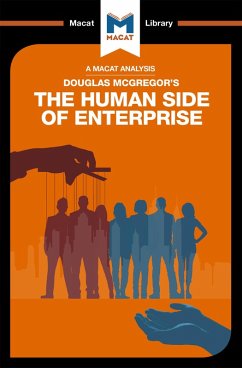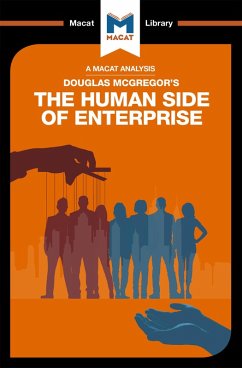Evaluation is all about judging the strength and weakness of positions: a critical evaluation asks how acceptable a line of reasoning is, how adequate, relevant and convincing the evidence is. McGregor sought to find out what makes a good manager by evaluating different management approaches, their assumptions about human behavior, and effects they had. In his view, management approaches could be roughly broken down into two "theories": Theory X, which held a negative idea of employee motivations; and Theory Y, which made positive assumptions about them. In McGregor's evaluation, Theory Y produced markedly better results in productivity and other measurable areas. On this basis, McGregor reasoned out a strong, persuasive argument for adopting Theory Y strategies on a grand scale.
Dieser Download kann aus rechtlichen Gründen nur mit Rechnungsadresse in A, B, BG, CY, CZ, D, DK, EW, E, FIN, F, GR, HR, H, IRL, I, LT, L, LR, M, NL, PL, P, R, S, SLO, SK ausgeliefert werden.









